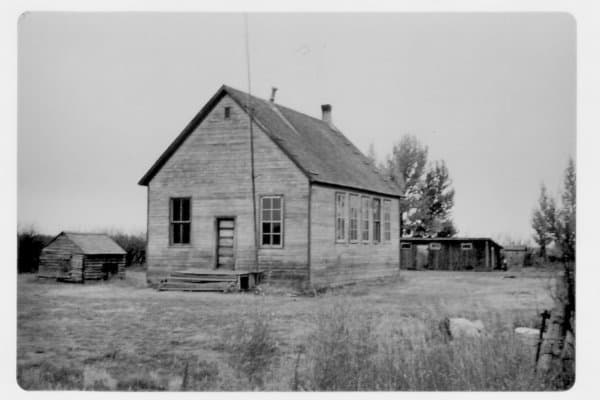Meanwhile, what was happening overseas in 1941? How did our small community keep track? At 8pm most families huddled around their radios in frozen silence hanging on every word, as the sonorous voice of doom aka Lorne Green described the cataclysmic events overseas. In 1941 in London alone, 100,000 homes were destroyed and 40,000 lives lost.
Over time the older boys in our school had created caves in the steep sides of the ditches adjacent to our school. The composition of the group changed each year as some quit school and others left for high school. However, the project remained the same – create a series of caves from which younger students were excluded – girls not at all whatever the age. What did they discuss while holed up in this dusty subterranean retreat? It isn’t too difficult to imagine a number of possibilities – smoking, girls, war and how they would fight if it was still going on when they were of age? They may even have imagined themselves in the dreaded trenches that many of their grandfathers had endured in WWl.
Most of the families in our community were farmers – farmers whose forebears could have come from anywhere in Europe or in any other part of the war zone. Many still had relatives and friends caught up in this apocalyptical mess. Many were second generation immigrants from Germany and other countries that had formed the Axis. Mixed feelings would be understandable.
WWll brought on a modified form of conscription, a practice that was highly debated. Farmers were usually exempt as they were deemed necessary for home food security. However, men in general and conscientious objectors could be conscripted for support services. This awkward position reflected Prime Minister Mackenzie King’s reluctance to declare full scale conscription that could have sent men directly into the war zones. Non-action conscripts were often taunted and maligned. You may have been medically excluded from active service – but still required to serve in support roles. A young teacher with very bad eyesight had boarded with us in our tiny house and taught at Rosebush before Mrs. Potter’s time. His handicap did not exempt him from support services. 13,000 support service men did finally leave Canada. Of these 2463 actually reached the “fields” of war and 69 died in battle.
An important part of the Rosebush effort was our Victory Garden, set on the south side of the school not far from swings and a teeter totter. Canadian schools were encouraged to grow edibles as a contribution to food security. Our little garden was not unique. Americans were able to supply over forty percent of their food needs by cultivating food gardens – Victory Gardens. Many years later I discovered that the Axis had cultivated Victory Gardens for the same reason – food security.
In my late teens I dated a young farmer of German extraction. One of his treasured belongings was a belt with the following inscription on its metal buckle: Gott Mit Unes. I never did ask him how he had obtained it. Apparently God was being called upon by both the Axis and the Allies. God must have been very confused!

Rosebush School




